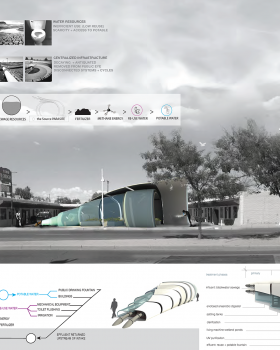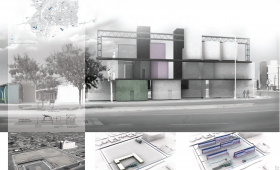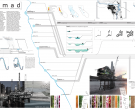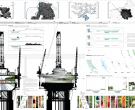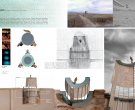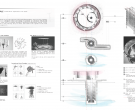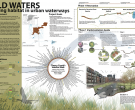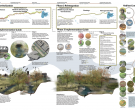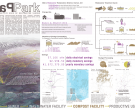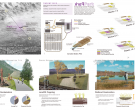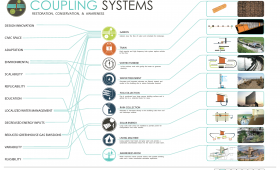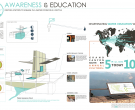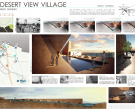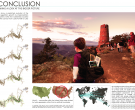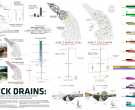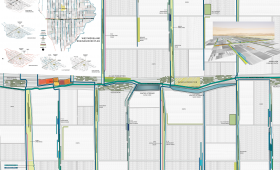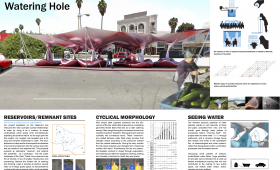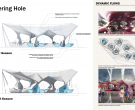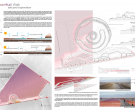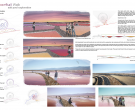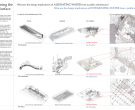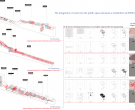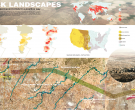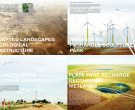Neither using less water nor securing more is the exclusive goal of a deeply intelligent environmental design. Distributed, decentralized water infrastructures surgically implanted into existing landscapes and neighborhoods raise equally important questions about civic life, public space, and cultural identity; about the body, sensual, social, and politic; about the role of ritual, quotidian and festive, in a pluralistic society; about our relationship to water as biological sacrament; and about our capacity to self-manage and self-govern at a local scale. Can redesigned water systems not only power an engine of ecological and economic renewal, but also reawaken our sensory engagement with our environment? Can distributed water networks be designed not only to be ecologically disciplined, but to re-enchant everyday life as well? Can a water system’s beauty interrupt ignorance or arrest apathy? Can a system’s transparency trigger cognition, rewiring a lost link between user and source? Can the full expressive potential of water-smart architecture recalibrate not only the volume of water a community uses, but also the character of that community’s relationship to the natural world? Can water, and the contemplation of its absence, be visibly reintroduced into the poetic nature of the arid and semiarid city form?
To shape public life, carry cultural values, and inform everyday experience, from utilitarian to sacral, is what drylands water infrastructures have always done, from Yazd to Fez, Istanbul to Rome, from Avestan’s pairidaēza to Andalusia’s Alhambra, from the chinampas of the Aztecs to the acequias of the Rio Embudo and the zanja madre of El Pueblo de Nuestra Señora la Reina de Los Angeles del Rio de Porciúncula. Only modern industrialized society has erased visibly working water systems from the surfaces of its public architectures. Drawing inspiration from sources as diverse as classical history to contemporary land arts, these proposals suggest a public landscape—from iconic national sites to local vernaculars—reinvested with systems that actively display, and prompt us to regulate, our negotiated, dynamic relationship with nature.


